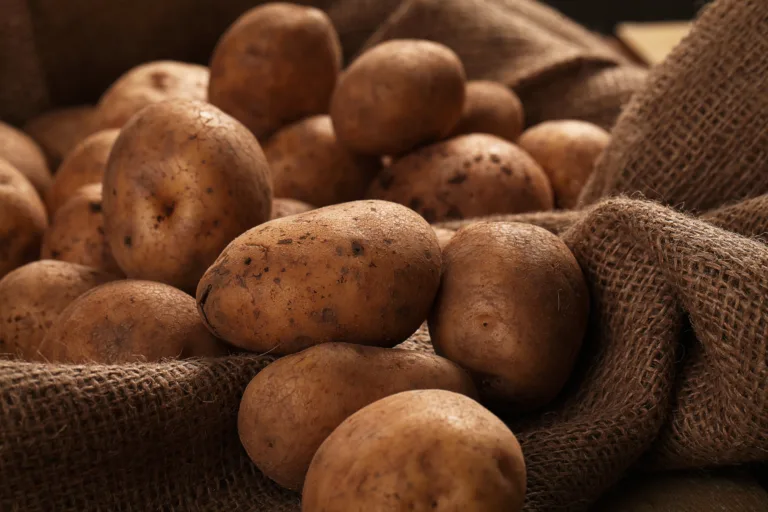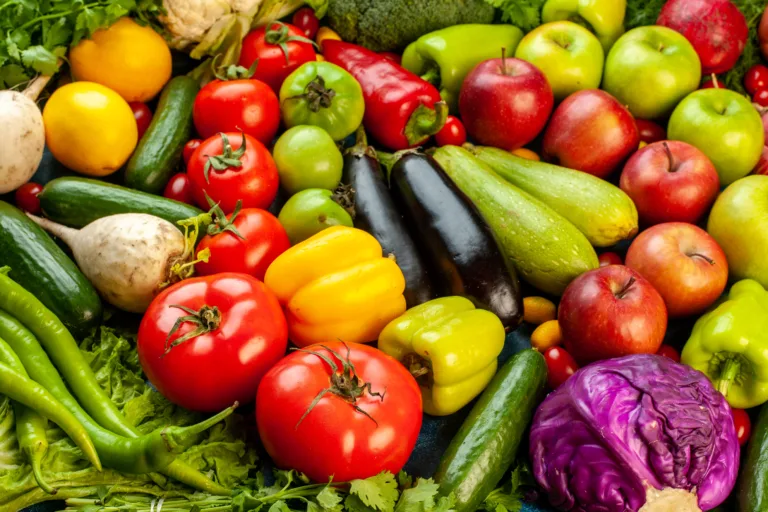
carbohydrates in diet
Here are 9 carbohydrates you need in your diet, according to nutritionists.
Comprehensive Guide to Essential Carbs for Your Diet
Carbohydrates, also known as carbs, are a vital macronutrient that plays a crucial role in providing energy for our bodies. Despite the misconceptions surrounding carbs, they are an essential part of a healthy and balanced diet.
In this comprehensive guide, we will explore the different types of carbs you need in your diet, debunk common myths, and provide you with valuable insights to help you make informed choices about incorporating carbs into your daily meals.
Understanding Carbohydrates
Starches are one of the three macronutrients, alongside protein and fat, that give energy to our bodies. They are made up of carbon, hydrogen, and oxygen molecules, and they are classified into three main types:
Simple Carbs: Also known as “sugar,” simple carbs are made up of one or two sugar molecules. They are immediately consumed by the body, causing a fast ascent in glucose levels.
Examples of simple carbs include table sugar, candies, cookies, soda, and fruit juice.
Complex Carbs: Complex carbs are made up of multiple sugar molecules and are found in foods such as whole grains, legumes, vegetables, and fruits.
They are digested and absorbed more slowly by the body, providing a steady source of energy and helping to regulate blood sugar levels.
Fiber: Fiber is a kind of carb that isn’t processed by the body. It passes through the digestive tract relatively unchanged and provides many health benefits, including promoting bowel regularity, improving gut health, and aiding in weight management. Fiber is found in foods such as whole grains, vegetables, fruits, nuts, and seeds.
The following are 9 high-carb food sources you ought to keep in your eating routine and basic, sound ways of getting a charge out of them.
- Brown Rice
- Maple Syrup
- Millet
- Oats
- Potatoes
- Pulses
- Quinoa
- Sweet Potatoes
- Vegetable

1- Brown Rice
Brown rice, a popular whole grain option, is not only known for its nutty flavor and chewy texture but also for its high-carb content.
Carbohydrates are an essential macronutrient that provides energy to the body, making brown rice a great source of sustained energy for an active lifestyle.
Nutritional Value of Brown Rice
Brown rice is a nutrient-rich grain that is minimally processed, allowing it to retain its natural bran and germ layers, which are rich in fiber, vitamins, and minerals.
One cup of cooked brown rice (195g) contains approximately 216 calories, 5g of protein, 45g of carbohydrates, 2g of fiber, and only 1.8g of fat.
Health Benefits of Consuming Brown Rice
Firstly, its high fiber content can aid in digestion, promote satiety, and help regulate blood sugar levels, making it a suitable option for individuals with diabetes or those looking to manage their weight.
Secondly, brown rice has a lower glycemic index compared to white rice, which means it can help stabilize blood sugar levels and prevent sudden spikes and crashes in energy levels.
making brown rice a potential ally in preventing chronic diseases like heart disease and certain cancers.
How Brown Rice Can Be Incorporated into a Healthy Diet
Incorporating brown rice into your diet is easy and versatile. It can be used as a side dish, in salads, stir-fries, soups, and stews.

2- Maple Syrup
Maple Syrup is a Good Source of Carbs: Unlocking the Health Benefits of This Natural Sweetener。 Maple Syrup is a delicious natural sweetener that has been used for centuries.
But did you know that maple syrup is also a good source of carbohydrates? In this article, we will explore the nutritional composition of maple syrup.
Dietary Creation of Maple Syrup
Maple syrup is made up of various nutrients, including carbohydrates, water, and small amounts of minerals such as calcium, magnesium, and manganese.
Carbohydrates: The Primary Macronutrient
Starches are the body’s basic source of energy. Maple syrup contains simple sugars, such as glucose and fructose, which are quickly absorbed by the body and provide an immediate source of energy.
This makes maple syrup an ideal choice for those looking for a natural source of carbs to fuel their bodies during physical activities or for a quick energy boost.
Benefits of Maple Syrup as a Source of Carbs
Maple syrup offers several benefits as a source of carbs for the body. We should look into some of these benefits.
Provides Energy for the Body
Maple syrup contains simple sugars that are quickly absorbed by the body and converted into energy. This makes maple syrup an excellent natural source of carbs to provide the body with the fuel it needs to perform physical activities, such as exercise or sports.
Contains Natural Sugars
Maple syrup contains natural sugars that are not refined or chemically altered. This means that maple syrup retains its natural sweetness and provides a rich and authentic flavor to culinary creations. It is also free from artificial additives, preservatives, and colorants.
3- Millet
Understanding Millet: A Nutrient-Dense Grain
Millet, a small-seeded grass, has been cultivated for thousands of years and is widely consumed in various cultures around the world.
One of the standout features of millet is its impressive nutrient density. Millet is packed with essential vitamins and minerals, making it a valuable addition to a healthy diet.
It is a rich source of B-complex vitamins, including niacin, thiamin, and riboflavin, which play crucial roles in energy metabolism, brain function, and cellular health.
Fiber-Filled Goodness: Millet for Digestive Health
Fiber is an essential component of a healthy diet that plays a critical role in digestive health. Millet is a rich source of dietary fiber, with both insoluble and soluble fiber present in significant amounts.
Insoluble fiber, found in the bran of millet, adds bulk to the stool and helps prevent constipation by promoting regular bowel movements.
B-complex vitamins: Millet is rich in B-complex vitamins such as niacin, thiamin, and riboflavin, which are essential for energy metabolism, brain function, and cellular health.
Incorporating Millet into Your Diet
Cooked millet can be used as a base for salads, stir-fries, or grain bowls, similar to rice or quinoa.
Millet flour can be used in baking for making bread, muffins, or pancakes.
Millet can be added to soups, stews, or porridges for added texture and nutrition.
Millet flakes can be used as a substitute for oats in recipes like granola or porridge.
Millet can be sprouted and used in salads or sandwiches for a crunchy texture.
4- Oats
What are Oats?
Oats are a type of whole grain that comes from the Averna sativa plant. They are commonly consumed in the form of oatmeal or rolled oats and are known for their nutty flavor and chewy texture.
Nutritional Value of Oats
Oats are highly nutritious and offer a wide range of health benefits. They are a rich source of carbohydrates, with approximately 66 grams of carbs per 100 grams of oats. Oats are also low in fat and contain moderate amounts of protein, fiber, vitamins, and minerals.

5- Potatoes
Energy Source: Potatoes are rich in carbohydrates, which are an essential source of energy for the body. They provide the fuel needed for physical activity and can help replenish glycogen stores after exercise.
Nutrient-Rich: Potatoes are packed with important nutrients such as vitamin C, vitamin B6, potassium, and dietary fiber. Vitamin C is an antioxidant that helps support the immune system, while vitamin B6 is involved in brain development and function.
Heart Health: Potatoes are naturally fat-free and cholesterol-free, making them a heart-healthy food choice. They are also a good source of fiber, which can help lower cholesterol levels and reduce the risk of heart disease.
Weight Management: Despite being rich in carbohydrates, potatoes can still be part of a healthy diet for weight management.
They are naturally low in calories and fat and can help keep you feeling full and satisfied due to their fiber content, which can aid in weight loss or weight maintenance efforts.
Digestive Health: Potatoes contain both soluble and insoluble fiber, which can help promote a healthy digestive system.
Soluble fiber can help regulate blood sugar levels and promote healthy gut bacteria, while insoluble fiber adds bulk to stool, aiding in regular bowel movements.
6- Pulses
Complex Carbohydrates: Pulses, such as lentils, chickpeas, beans, and peas, are excellent sources of complex carbohydrates.
Complex carbohydrates are digested more slowly by the body, providing a steady and sustained release of energy, which can help regulate blood sugar levels and provide long-lasting fuel for physical activity.
High Fiber Content: Pulses are also rich in dietary fiber, including both soluble and insoluble fiber. Fiber is beneficial for digestive health, as it helps promote regular bowel movements, aids in maintaining healthy gut bacteria, and can help lower cholesterol levels.
Nutrient-Dense: Pulses are packed with important nutrients such as protein, vitamins, and minerals. They are an excellent source of plant-based protein, making them an ideal option for vegetarians and vegans.
Pulses also contain essential vitamins and minerals, including folate, iron, potassium, and magnesium.
Low in Fat: Pulses are naturally low in fat, particularly saturated fat, and do not contain cholesterol. This makes them a heart-healthy option as a high intake of saturated fat and cholesterol is associated with an increased risk of heart disease.
7- Quinoa
Complex Carbohydrates: Quinoa is a nutrient-dense grain that is rich in complex carbohydrates. Complex carbohydrates are slow-digesting and provide sustained energy, helping to regulate blood sugar levels and provide long-lasting fuel for the body.
High Fiber Content: Quinoa is also an excellent source of dietary fiber, including both soluble and insoluble fiber.
Fiber is essential for digestive health, promoting regular bowel movements, aiding in maintaining healthy gut bacteria, and supporting heart health by helping to lower cholesterol levels.
Complete Protein: Quinoa is unique among grains as it is a complete protein, containing all nine essential amino acids that the body needs for growth and repair.
Nutrient-Rich: Quinoa is packed with important nutrients such as vitamins, minerals, and antioxidants. It is a good source of manganese, magnesium, phosphorus, and folate, which are essential for bone health, muscle function, and red blood cell production.
Gluten-Free: Quinoa is naturally gluten-free, making it a suitable option for those with gluten sensitivity or celiac disease.
8- Sweet Potatoes
Certainly! Here are the benefits of sweet potatoes as a good source of carbohydrates:
Complex Carbohydrates: Sweet potatoes are a rich source of complex carbohydrates, which provide sustained energy to the body and help regulate blood sugar levels.
High Fiber Content: Sweet potatoes are also high in dietary fiber, including both soluble and insoluble fiber, which promotes digestive health, aids in regular bowel movements, and supports heart health by lowering cholesterol levels.
Nutrient-Rich: Sweet potatoes are packed with important vitamins, minerals, and antioxidants. They are an excellent source of vitamin A, vitamin C, manganese, and potassium, which are essential for eye health, immune function, and overall well-being.
Antioxidant Properties: Sweet potatoes are rich in antioxidants, such as beta-carotene, which has anti-inflammatory properties and may help protect against chronic diseases.
Low Glycemic Index: Despite being a source of carbohydrates, sweet potatoes have a lower glycemic index compared to other starchy vegetables, meaning they have a less significant impact on blood sugar levels.

9- Vegetables
Certainly! Here are the benefits of vegetables as a good source of carbohydrates:
Low-Glycemic Carbohydrates: Vegetables are typically low in carbohydrates and contain complex carbohydrates with a low glycemic index, meaning they have a minimal impact on blood sugar levels and can help regulate blood sugar levels.
High Fiber Content: Vegetables are an excellent source of dietary fiber, including both soluble and insoluble fiber, which promotes digestive health, aids in regular bowel movements, and supports heart health by lowering cholesterol levels.
Nutrient-Rich: Vegetables are packed with essential vitamins, minerals, and antioxidants that are vital for overall health and well-being. They are a great source of vitamins A, C, K, and various B vitamins, as well as minerals like potassium, magnesium, and folate.
Antioxidant Properties: Vegetables are rich in antioxidants, such as beta-carotene, vitamin C, and phytonutrients, which have anti-inflammatory properties and may help protect against chronic diseases.
Low-Calorie Option: Most vegetables are low in calories, making them a great choice for weight management and maintaining healthy body weight.
Dietary Diversity: Including a variety of vegetables in your diet can provide a wide array of nutrients, flavors, and textures, helping to promote a balanced and diverse diet.
Incorporating a variety of vegetables into a balanced diet can provide numerous health benefits due to their low-carb, high-fiber, and nutrient-rich nature.
They are an essential part of a healthy and balanced diet, and their consumption can contribute to overall well-being.
Debunking Common Carb Myths
Let’s debunk some of the common myths surrounding carbs:
Myth 1: Carbs are bad for you and cause weight gain.
Carbs are not inherently bad for you and do not directly cause weight gain. In fact, they are an important source of energy for our bodies and are necessary for various physiological functions.
The key to managing weight is to choose the right types of carbs and consume them in appropriate amounts, as part of a balanced diet.
Myth 2: All carbs are the same.
Not all carbs are created equal. Simple carbs, such as refined sugar and processed foods, can cause a rapid spike in blood sugar levels and should be consumed in moderation.
On the other hand, complex carbs, such as whole grains, vegetables, and fruits, provide more sustained energy and are rich in essential nutrients.
Myth 3: Low-carb diets are the best for weight loss.
While low-carb diets may help with short-term weight loss, they are not necessarily the best long-term approach for everyone. Our bodies need carbs for energy and overall health.
It’s important to choose the right types of carbs and consume them in appropriate portions as part of a balanced diet that meets your individual needs.
The Importance of Carbs in Your Diet
Carbs are a crucial source of energy for our bodies, especially for our brains and muscles. They provide the fuel needed for physical activity, cognitive function, and overall performance.
In addition to providing energy, carbs also play a role in various physiological processes, such as:
Glycogen Storage: Carbs are stored in our muscles and liver as glycogen, which serves as a readily available source of energy during times of increased physical activity or when our blood sugar levels are low.
Brain Function: Our brain relies heavily on carbs for energy. Carbs are converted into glucose, which is the primary source of fuel for our brain cells.

